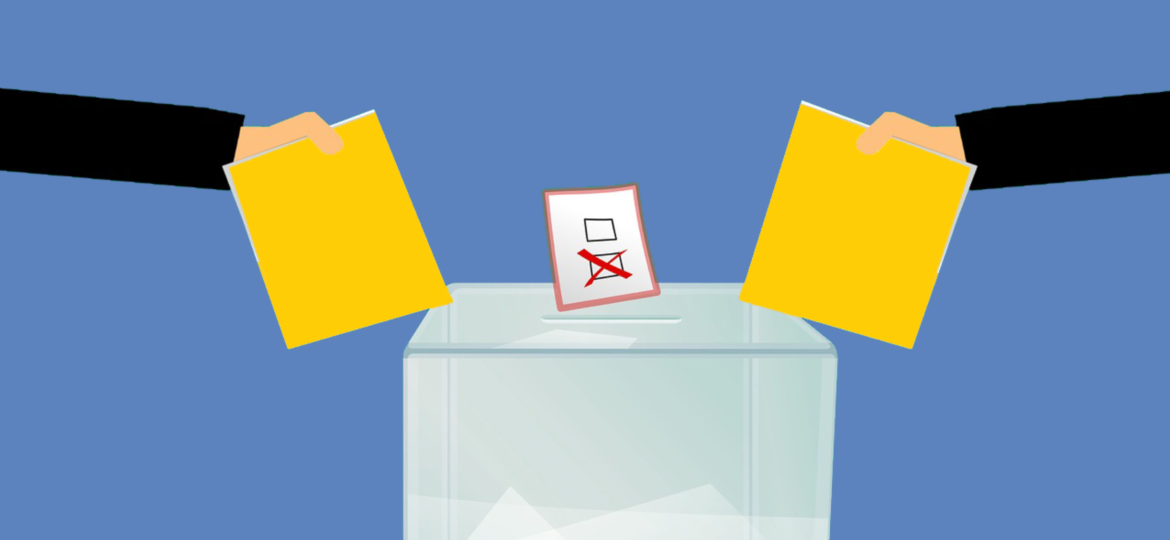Ahead of the European Parliament elections, EDMO launched a training series on election integrity that was attended by over a hundred participants from the fact-checking sector, academia, journalism and civil society. The first training module focused on election integrity on online platforms. The second was aimed at journalists covering the upcoming elections. Find out more and watch the recording from the training sessions below.
Module 1: Elections Integrity on Online Platforms: What to Expect and How to Engage
During the first module Jeff Allen and Glenn Ellingson from the Integrity Institute presented the insights from the Integrity Institutes best practices for online platforms’ elections integrity on Responsibly supporting elections on online platforms (Part1), and Defining and Achieving Success for elections integrity on online platforms (Part 2) and how they may be relevant for civil society.
With elections in Europe scheduled throughout 2024, including for European Parliament, the training session aimed to help stakeholders better understand how platforms can and should be undertaking election integrity work, and how they can advocate for better practices, and more effectively interact with platforms, including what the entry points might be to address the challenges related to the electoral context.
In a changing environment with reduced capacity in trust and safety by platforms, the advent of generative AI and increasing governmental regulation and scrutiny, it is essential to understand what we can expect of platforms when approaching elections.
Glenn Ellingson provided an inside-out perspectives on how platforms may and should be approaching elections, including:
- clearly communicating priorities and policies, what harms they are planning to address and how to measure and demonstrate the attainment of specific goals;
- providing adequate resources to maintain election integrity and proof of sufficient operational readiness (and staffing) to enforce policies;
- engaging external partners and communities, including governments, elections authorities and other political actors, as well as working effectively with civil society;
- studying risks in transparent fashion and providing effective harm reduction measures, though enforcement and product leavers;
- and changes to platform design which may reduce harm such as by reducing dangerous virality or promoting authoritative content.
The latter may be especially important to address safety in elections in underserved communities, in countries where platforms lack regional or language expertise.
Jeff Allen outlined the basic components of what a risk assessment may look like, including providing a clear overview of the risk in different areas including company governance, algorithms, and content moderation and the scale cause and nature of existing harms, including electoral misinformation. Collaboration with civil society well before the elections is essential and should be mutually beneficial, including establishing escalation processes early. Questions of accountability, increased transparency and platform design were discussed as key elements to ensure election integrity.
Watch the video below to find out more.
Module 2: Training for journalists ahead of the European Parliament elections
The second module of the EDMO Training Series provided a toolkit for journalists and stakeholders in the field for the coverage of the European Parliament elections.
Tommaso Canetta gave an overview of the work of the EDMO and the EDMO fact-checking network in monitoring disinformation ahead of the elections, as well as an outline of available tools and publications. Among those, the monthly briefs allow for quantitative monitoring, over time, of the evolution of trends and disinformation topics. On the other hand, through cooperative investigations, the organisations within the EDMO fact-checking network join efforts on specific disinformation narratives.
The outputs produced by the EDMO Taskforce on 2024 European Elections were presented. Ahead of the elections, the expected publications include daily newsletters, weekly insights, as well as public-facing articles, public statements, and public reporting. Starting from April 2024, the daily newsletter highlights urgent disinformation narratives and material related to the EU elections, as well as any other relevant disinformation content at the EU level. The weekly insights include analyses of disinformation narratives and trends linked to the EU elections, and, most importantly, short textual early warnings. As for the public-facing articles, they provide specific disinformation content and debunking linked to EU elections.
In part 2, Claes de Vreese discussed the history of the European Parliament elections and how they were considered, for a long time, second order national elections. More recently, the elections are mostly not about EU politics but about the EU as a polity. The elections have also become a forum for contestation over the future of the EU.
While the salience of the elections has increased overtime, EU issues have, with time, become more important in voting decisions.
Yet one cannot speak of one news coverage of the European parliamentary elections. Journalistic coverage of the European elections looks very different depending on where one is located, with significant differences between countries as well as across editions of EP elections Patterns and drivers for journalistic coverage in the run up to the elections include: public service broadcast tends to carry more news than the commercial counterpart, and there is less coverage by tabloid newspapers. Moreover, the more the elite dispersion, meaning the furthest the political parties are from each other, the more coverage there is.
Ahead of the 2024 elections, the electorate appears more polarized and nuanced than it has been before, however support to European integration has increased in some countries.
Claes de Vreese also emphasized that the news consumption patterns have changed, particularly since 1999. Online consumption has increased, bringing in new audience groups. A few topics for 2024 are new in the typical agenda for EP elections, including electoral integrity, the role of platforms in providing an arena for information on the elections, as well as the use of AI in political campaign. A final challenge in the coverage process is related to misinformation. Journalists will have to deal with this topic, placing enough attention on it albeit without causing alarmism.
